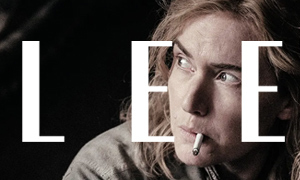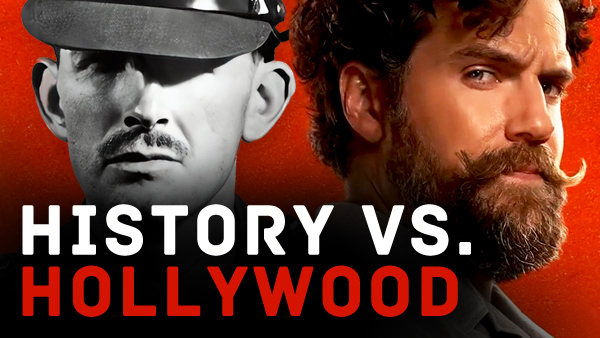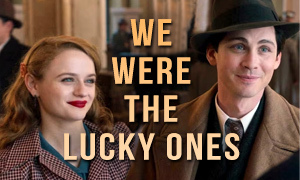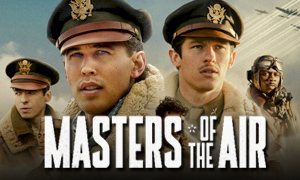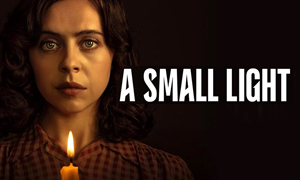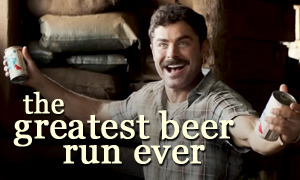The Promise: History vs. Hollywood
| REEL FACE: | REAL FACE: |
Aaron Neil
| Talaat Pasha
Born: 1874 Birthplace: Kırcaali, Edirne Vilayet, Ottoman Empire Death: March 15, 1921, Berlin, Germany (assassination) |
James Cromwell
Born: January 27, 1940 Birthplace: Los Angeles, California, USA | Ambassador Henry Morgenthau Sr.
Born: April 26, 1856 Birthplace: Mannheim, Baden, Germany Death: November 25, 1946, New York City, New York, USA (cerebral hemorrhage) |
Jean Reno
Born: July 30, 1948 Birthplace: Casablanca, French Protectorate of Morocco | Admiral Louis Dartige du Fournet
Born: March 2, 1856 Birthplace: Putanges-Pont-Écrepin, France Death: February 16, 1940 |
How much of The Promise is based on a true story?
The main characters and their storyline is fiction. This includes the love triangle between Ana (Charlotte Le Bon), a Paris-raised Armenian; her American journalist boyfriend Chris Myers (Christian Bale); and the Armenian medical student, Mikael Boghosian (Oscar Isaac), who falls in love with her. The love story was created by screenwriters Terry George and Robin Swicord. However, much like Doctor Zhivago, the major political events going on around these characters are largely factual. This includes the rounding up of Christian Armenians, which started the Armenian Genocide in April 1915. Whole villages were subsequently wiped out, as Mikael learns was the fate of his own village in the movie.
What was the Armenian Genocide?
The Armenian Genocide refers to the rounding up and killing of approximately 1.5 million Christian Armenians between 1915 and 1922 by Muslims of the Ottoman Empire (and its successor state, the Republic of Turkey). Most who were killed were citizens of the Ottoman Empire. The genocide is also referred to as the Armenian Holocaust and predates the Jewish Holocaust by 20 years.
Does Turkey still deny that the Armenian Genocide took place?
Yes. During our investigation into The Promise true story, we learned that the Turkish government refuses to acknowledge it as a genocide, saying that it was simply a religious conflict between Christians and Muslims (the latter of whom were the overwhelming majority). Most Turks do not believe that the extermination of 1.5 million Armenians by the Turkish military was a genocide. In fact, many don't acknowledge it at all, and others will only go as far as to call it a massacre. One reason it is not talked about in Turkey is because it is illegal to discuss the Armenian Genocide. With roughly 2 million Armenians living in the Ottoman Empire prior to the killings, it's hard to deny that the extermination of 1.5 million of them was not a systematic attempt to wipe out an entire people. -History.com
How are there over 120,000 IMDB ratings for a movie not yet released?
The fraudulent IMDB ratings are part of a propaganda campaign by the Turkish government and Turkish people to discredit The Promise before its release, mainly in an effort to deter people from seeing it. Armenians have countered by giving the movie high IMDB ratings in order to encourage people to see it and in turn bring awareness to this largely unacknowledged blight on Turkey's past.
At the time of this article (two days prior to the movie's release), there are 123,112 IMDB ratings for The Promise. That's more than for The Secret Life of Pets, one of the top grossing movies of 2016. Of the total votes, 61,416 are 1-star ratings and 59,966 are 10-star ratings. All of the ratings have so far happened prior to The Promise's release. The movie did screen at the Toronto International Film Festival in September 2016, where there were only three showings. However, this opened the door to voting on IMDB, leading to the flood of fake ratings and the battle between Turkish deniers and Armenians.
Why won't IMDB step in and remove the fraudulent ratings?
The Promise's fake IMDB ratings are certainly a problem for IMDB, one that has led some to question the site's credibility for other movies as well. One only has to look back a few months to the assault of negative ratings before the release of A Dog's Purpose, which were sparked by allegations of animal abuse on the movie's set (an allegation that the filmmakers have since been absolved of). That movie found 94% of voters having already given it a 1-star rating a week before its release. -TheWrap.com
So what's the solution for IMDB? One thing they could do would be to step in and wipe The Promise's ratings clean until the movie's release. That would at least prevent early fraudulent ratings and deter Armenian Genocide deniers from using the site as a propaganda tool. IMDB could also block Turks and Armenians from rating the movie altogether, which can easily be done by blocking the IP address ranges of the two countries. Without enough controversy and media attention calling them out, IMDB has instead chose to ignore the problem. One can only wonder how many people will steer clear of the film because they believe the false IMDB rating and in turn remain largely unaware of the Armenian Genocide. At this point, the filmmakers can only hope that public outrage grows enough to lift the rating and subdue the deniers.
Did Turkey try to stop The Promise from being made?
While Turkey has been successful in stopping other movies about the Armenian Genocide from being made, including MGM's plans for Clark Gable to star in a 1930s film adaptation of Franz Werfel's novel The Forty Days of Musa Dagh, The Promise fortunately found its way to the big screen. This is mainly because it was independently financed by businessman Kirk Kerkorian, the former owner of Metro-Goldwyn-Mayer, who is of Armenian descent. In researching The Promise true story, we learned that Kerkorian passed away in 2015 just as production was beginning on the movie, which cost almost $100 million to make before tax breaks. It is one of the most expensive independently financed movies of all time. -Variety.com
As The Promise waited to close a distribution deal, producer Eric Esrailian grew worried that buyers were being scared away by the movie's subject matter. "I'll just say that there are some studios that have business interests in Turkey, and you can form your own opinion." The Promise did eventually land a distributor in Open Road Films. However, the controversy is likely not over. Director Atom Egoyan, whose 2002 film Ararat featured a Hollywood director attempting to make a movie about the Armenian Genocide, felt the full weight of the denialist lobby. "It's going to be a tough ride," Egoyan says. In his case, Ararat's distributor Miramax and the studio's then-owner, Disney, were targeted, with Miramax receiving so many email complaints that the studio's website crashed. -Variety.com
Why did the Turkish government want to wipe out the Armenians?
Ever since Armenia was absorbed by the Turkish Ottoman Empire in the 15th Century, the Christian Armenians suffered racial discrimination and poor treatment at the hands of the Muslim Turks, who considered them infidels. They also resented that the Armenians were better educated and more prosperous in commerce and trade. When the rebel group known as the Young Turks overthrew the Sultan in 1908, the Armenians finally thought their situation was going to improve. However, despite the Young Turks more modern idea of government and promises of racial justice, they treated the Armenians far worse. They saw Christian Armenians as a threat to their newly established order.
When Turkey entered World War I with Germany in 1914, Armenia, fed up with centuries of Turkish mistreatment, turned on them and aligned themselves with their Christian neighbor, Russia. This prompted Turkey to declare holy war on all Christians who weren't allied with them, including Armenia. The Turkish government wanted Armenians removed from all war zones, an effort that foreshadowed the genocide that would soon follow. -ThePromisetoAct.org
Did the Armenian Genocide begin with the deportation and killing of intellectuals?
Yes. According to most Armenians, the genocide started when several hundred Armenian intellectuals and community leaders were rounded up and sent on a death march through the desert on April 24, 1915. They were given no water or food, which resulted in hundreds dying. In reality, deportations of Armenians really began two weeks earlier on April 8 in Zeytun, but the 24th is the date most often cited.
Are the atrocities committed against the Armenians in the film exaggerated?
No. The Promise true story reveals that during the seven years from 1915 to 1922, Christian Armenians suffered horrifically at the hands of Muslim Turks. Turkish killing squads were formed to slaughter Armenians, including burning them alive, throwing them off cliffs, drowning them, crucifying them, and ending their lives in other unthinkable ways. Many women were raped and mothers watched their infants dashed off rocks before their eyes. Some Armenians were used for medical experimentation, including being administered hazardous drugs or outright poisoned. The Turkish military division in charge of carrying out the atrocities was referred to as The Special Organization.
Approximately 25 concentration camps were set up, including labor camps like the one Mikael (Oscar Isaac) is imprisoned in until he escapes in the movie. Others who weren't killed or sent to camps were deported from the region altogether. However, many never made it out, as they were either massacred on the way or succumbed to starvation and exhaustion. It was all part of Turkey's plan to disguise extermination as deportation.
Did Turkey's Minister of Interior, Talaat Pasha, admit to the genocide?
Yes. Talaat Pasha, one of the leaders of the Young Turks, is considered to be the main architect behind the Armenian Genocide. U.S. Ambassador Henry Morgenthau Sr. said that Talaat Pasha and other Turkish officials made no attempt to conceal the real purpose of the deportations. He includes several conversations he had with Talaat Pasha in his book Ambassador Morgenthau's Story. In the book, Pasha is forthright with his intention for the deportations to be a guise for extermination. Abdulahad Nuri, an official under Pasha in charge of the deportations, would also later testify that Pasha told him that the goal of the deportations was "extermination."
Did Talaat Pasha really demand a list of the dead Armenians who had American life insurance policies?
Yes. The shocking request is based in fact. According to Ambassador Henry Morgenthau, Talaat demanded that he turn over the names of Armenians who had American life insurance policies so that the state could collect the payouts. Morgenthau categorically denied Talaat's request, calling it "one of the most astonishing requests I have ever heard." -Ambassador Morgenthau's Story
Did Armenian refugees really escape down a mountainside to the coast like in the movie?
Yes. While exploring The Promise true story, we learned that this scenario is indeed based in historical fact. In the movie, Mikael (Oscar Isaac) and Ana (Charlotte Le Bon) link up with a large group of refugees who are forced to hold off the Turks as they escape down the side of a mountain to the coast. The French Navy has come to their aide with Chris (Christian Bale) in tow. In real life, some 4,000 Armenian civilians successfully fought off Ottoman Turkish forces for 53 days in 1915 after retreating to the highest town on Musa Dagh, a mountain in the Hatay province of Turkey near the Mediterranean Coast. Just as their ammo and food was almost gone, they escaped down the backside of the mountain and were rescued by the French Navy. The event inspired Franz Werfel to pen his novel The Forty Days of Musa Dagh.
Is it true that all the profits from the movie's release are being donated to human rights organizations?
Yes. According to The Hollywood Reporter, all of the profits from The Promise's theatrical run are going to be donated to nonprofit organizations, including the Elton John AIDS Foundation and other humanitarian and human rights organizations.
Armenian Genocide Documentaries & Related Videos
Dig deeper into The Promise movie true story by watching the videos below, including modern-day Turks denying the Armenian Genocide on camera. Then watch The Promise movie trailer.
Link-to-Learn More:
